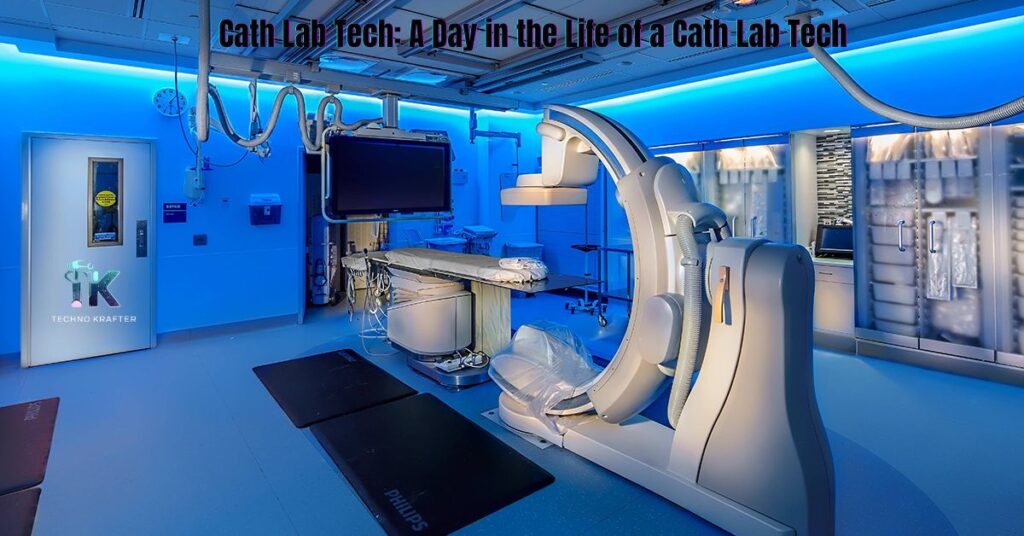A Cath Lab Tech and play a vital role in assisting cardiac physicians during arteries of the heart method. Dive into the dynamic world of catheterization labs where you’ll help assessment and treat heart conditions with accuracy and expertise.
What does a Cath Lab Tech Do?
Cath Lab Techs, short for Catheterization Laboratory Technicians, are essential members of the arteries of the heart care team, specializing in assisting physicians during various cardiac procedures. Their duties cover.
A wide range of responsibilities, from preparing patients for catheterization procedures to assisting during angioplasty and stent placements. Cath Lab Techs meticulously monitor patients’ vital signs throughout procedures, ensuring their safety and comfort. Beyond method support, they maintain sterile environments, handle intricate equipment.
It is a document procedure details accurately. With a keen eye for detail and a enrolment to patient care, Cath Lab Techs play a crucial role in diagnosing and treating heart conditions, contributing to improved cardiac health outcomes.
Cath Lab Techs
Cath Lab Techs assist in cardiovascular procedures, ensuring patient safety and method efficiency. Key duties include preparing patients, monitoring vital signs, and maintaining sterile environments.
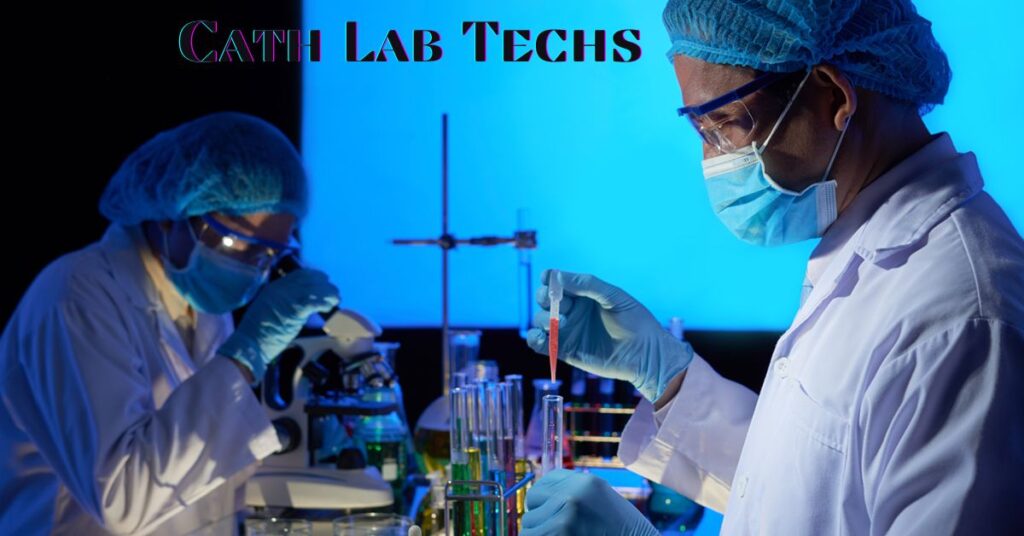
- Explore a career as a Cath Lab Tech, assisting in vital cardiovascular procedures.
- Cath Lab Techs support physicians during cardiac catheterization and angioplasty.
- Monitor patients’ vital signs and maintain sterile environments during method.
- Prepare patients for catheterization procedures with precision and care.
- Assist in the placement of stents and other cardiac interference.
- Document procedure details accurately for compact patient records.
- Play a crucial role in diagnosing and treating heart conditions, ensuring optimal patient care.
READ THIS BLOG: How To Reset Shark Robot Vacuum?
Interventional Radiology Techs
Interventional Radiology Techs are key players in performing minimally attacker procedures using imaging techniques. They assist radiologists in guiding method such as angioplasty and tumor exclusion.
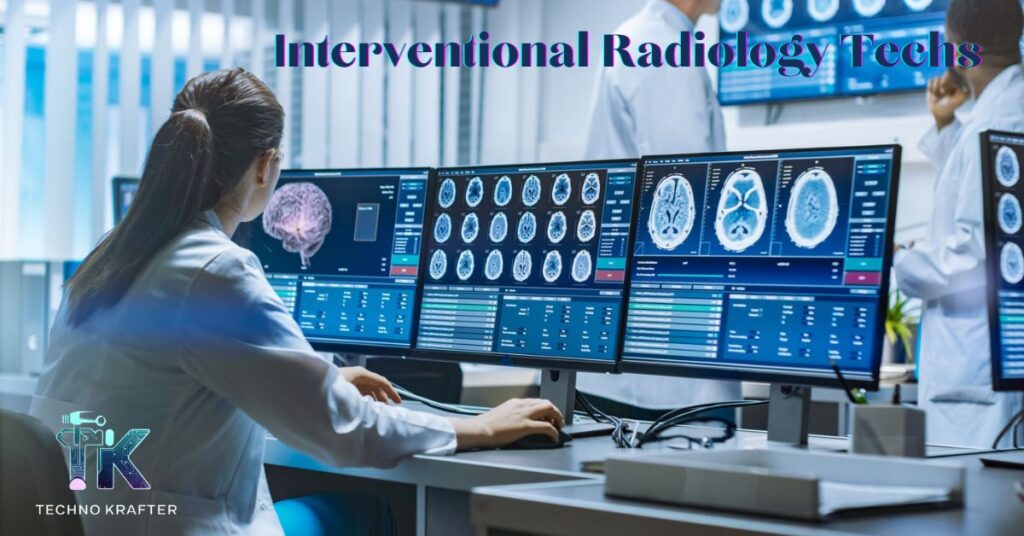
Here are 7 key responsibilities of Interventional Radiology Techs:
- Prepare patients for radiologic method
- Assist in image-guided procedures like angioplasty and stent placement
- Manage imaging devices such as CT, MRI, and ultrasound machines
- Administer contrast media and medications as directed
- Verify image results for accurate diagnosis
- Educate patients about imaging procedures
- Maintain and care for radiology equipment and instruments
Electrophysiology (EP) Techs
Electrophysiology (EP) Techs are instrumental in diagnosing and treating heart rhythm disorders through specialized procedures. They assist cardiologists in holding electrophysiological studies to measure the heart’s electrical activity.
Here are 7 key responsibilities of Electrophysiology (EP) Techs:
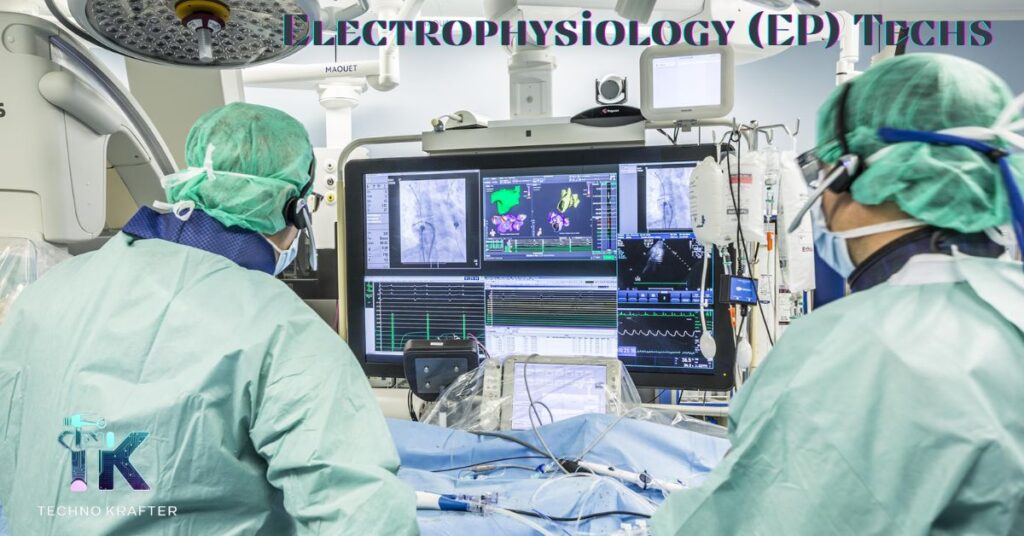
- Support physicians during device Liens de travail procedures like pacemakers or defibrillators
- Monitor patients during EP testing or ablation procedures
- Identify and respond to abnormal heart rhythms during procedures
- Maintain and operate EP lab equipment
- Assist in treating patients with arrhythmias
- Educate patients about heart rhythms and devices
- Schedule appointments and maintain EP patient files
READ THIS BLOG: How To Proceed Shark Robot Vacuum Connect To New WiFi?
UNDERSTANDING THE WORK OF CATH LAB TECHS IN CARDIAC ENVIRONMENTS
The work of Cath Lab Techs in cardiac environments is crucial for delivering optimal patient care. These skilled professionals cooperate closely with cardiologists, nurses, and radiologic technologists in performing complex cardiovascular procedures.
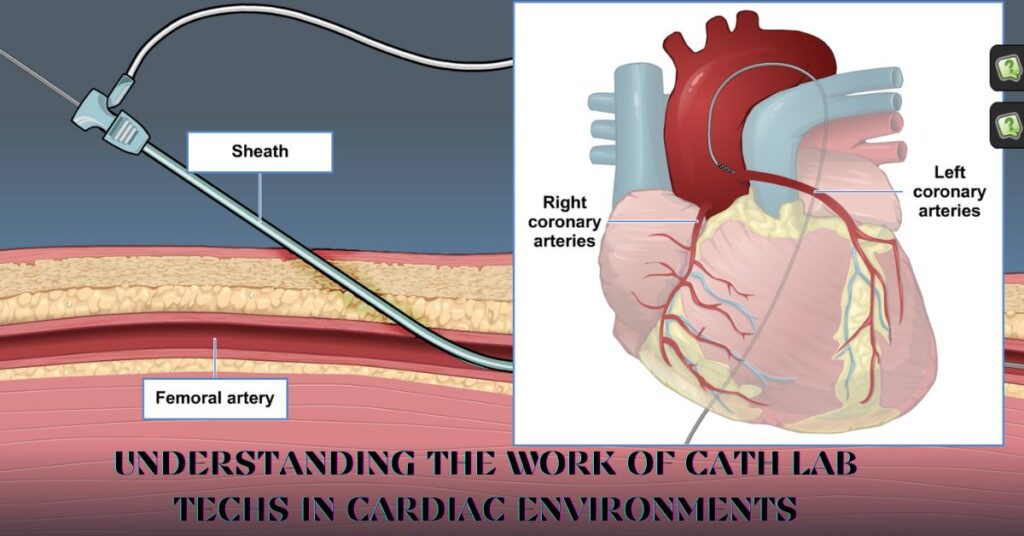
Cath Lab Techs work nonstop in the cardiac catheterization laboratory, where they spend hours on their feet wearing lead aprons during procedures. Their expertise in human anatomy, cardiovascular physiology, and intricate device handling ensures precise execution.
The procedures like angiograms and pacemaker implantations. Effective communication skills allow them to provide patients with reassurance and clarity throughout procedures. With their dedication and expertise, Cath Lab Techs play a vital role in diagnosing and treating heart conditions.
PROCEDURES PERFORMED BY CATH LAB TECHNICIANS
Cath Lab Technicians assist in various minimally invasive cardiac procedures, ensuring patients receive high-quality care. From cardiac catheterization to percutaneous coronary interventions, they play a pivotal role in diagnosing and treating heart conditions.
It’s work links pacemakers or performing structural heart repairs; Cath Lab Techs handle each with accurate and expertise. They are expert in vascular procedures and imaging techniques, providing practice collector care to patients.
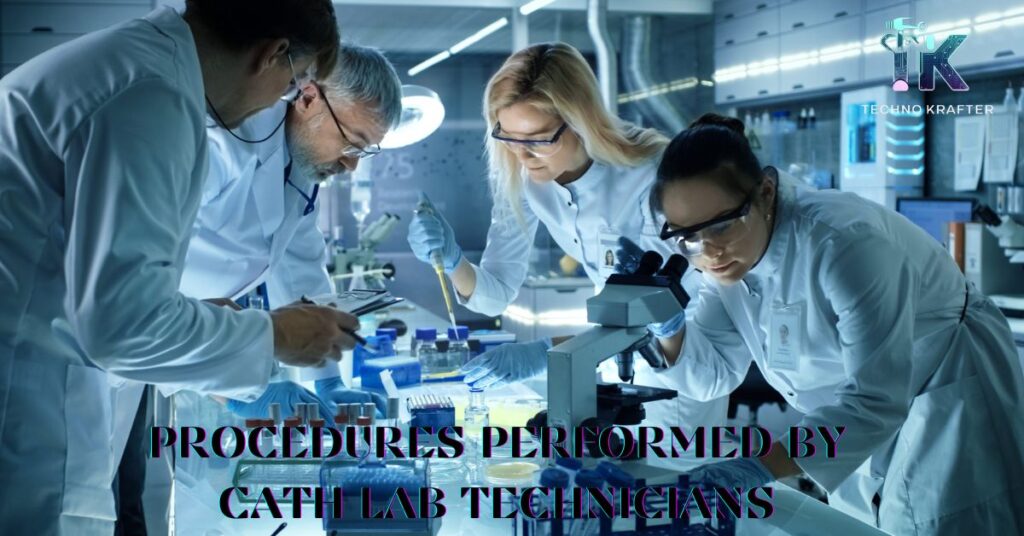
With their specialized skills, Cath Lab Technicians please highlight to improving cardiovascular health outcomes.
- Cardiac Catheterization (angiogram or coronary angiography)
- Percutaneous Coronary Intervention (PCI)
- Pacemaker/ICD Implantation
- Structural Heart Procedures
- Vascular Procedures
- Electrophysiology Studies
CERTIFICATIONS FOR A TRAVEL CATH LAB TECHNICIAN
For Travel Cath Lab Technicians, obtaining certifications enhances their expertise and career prospects. Here are 6 key certifications for Travel Cath Lab Technicians:
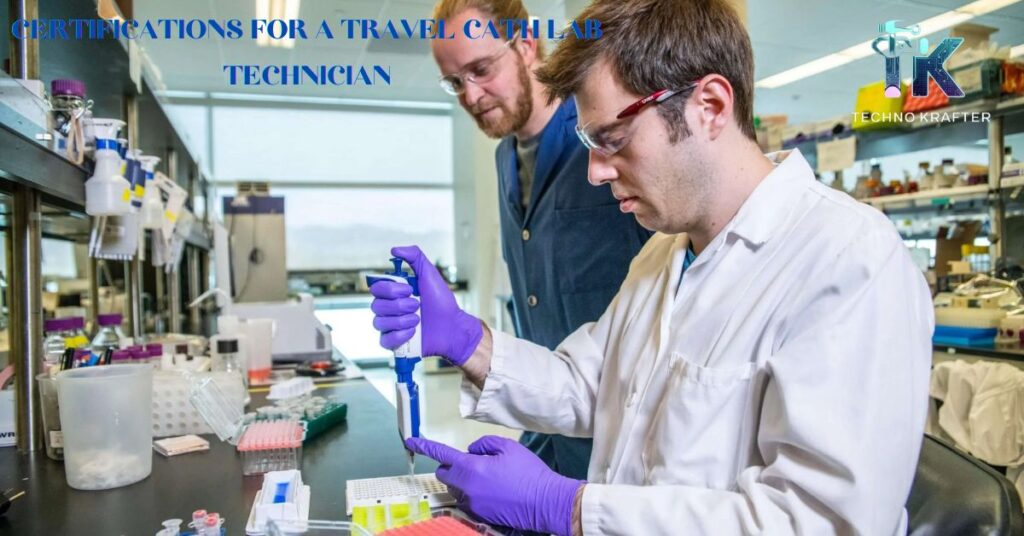
- Registered Cardiovascular Invasive Specialist (RCIS)
- Basic Life Support (BLS)
- Advanced Cardiovascular Life Support (ACLS)
- Certified Cardio graphic Technician (CCT)
- Certified Radiologic Technologist (CRT)
- Certified Vascular Specialist (CVS)
Is Cath Lab Nurse Easy
If becoming a Cath Lab Nurse is easy. While it’s a rewarding career, it requires dedication, specialized training, and ongoing learning. Cath Lab Nurses must possess strong clinical skills, critical thinking abilities, and a deep understanding of cardiovascular care. With proper education and experience, navigating.
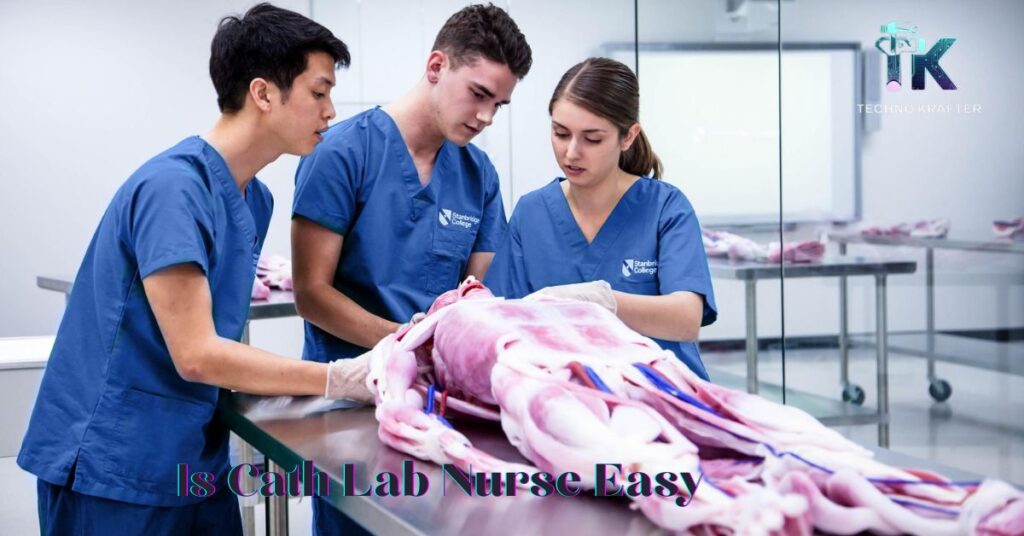
The complexities of the Cath lab environment become manageable. However, it’s important to recognize that the role comes with challenges and responsibilities that require commitment and perseverance. Overall, while it may not be easy, the fulfillment and impact of being a Cath Lab Nurse make the journey worthwhile.
Difference b/w Cath Lab tech and Cath Lab Nurse
The difference between Cath Lab Techs and Cath Lab Nurses is crucial for staffing and patient care. While both roles operate within the cardiac catheterization lab, their responsibilities and qualifications vary. Here’s a comparison table outlining the distinctions between the two:
| Aspect | Cath Lab Tech | Cath Lab Nurse |
| Role | Assists in procedures | Assists and monitors patients |
| Primary Responsibilities | Set up equipment, assist physicians | Administer medications, monitor vital signs |
| Education Requirements | Associate’s degree in cardiovascular technology | Associate’s or Bachelor’s degree in nursing |
| Clinical Training | Focus on procedural support and equipment handling | Emphasizes patient care, monitoring, and medication administration |
| Scope of Practice | Primarily procedural support | Involves direct patient care and assessment |
A Cath Lab Nurse UK
These specialized nurses play a crucial role in assisting cardiologists during cardiac procedures. With their expertise in cardiovascular care, Cath Lab Nurses ensure the safety and comfort of patients throughout method like angioplasty and cardiac catheterization.

They possess extensive knowledge of cardiac anatomy and physiology, providing invaluable support to the healthcare team. As key members of the Cath lab team, Cath Lab Nurses help deliver high-quality care to patients with heart conditions.
Explore the vital role of Cath Lab Nurses in the UK’s healthcare system today.
READ THIS BLOG: 6 Proven Ways To Fix Shark Robot Vacuum Mapping Issues
Role of a Cath Lab Nurse
The role of a Cath Lab Nurse is important in delivering comprehensive care to patients undergoing cardiovascular method. These specialized nurses assist cardiologists and other healthcare professionals in performing various cardiac inteference.
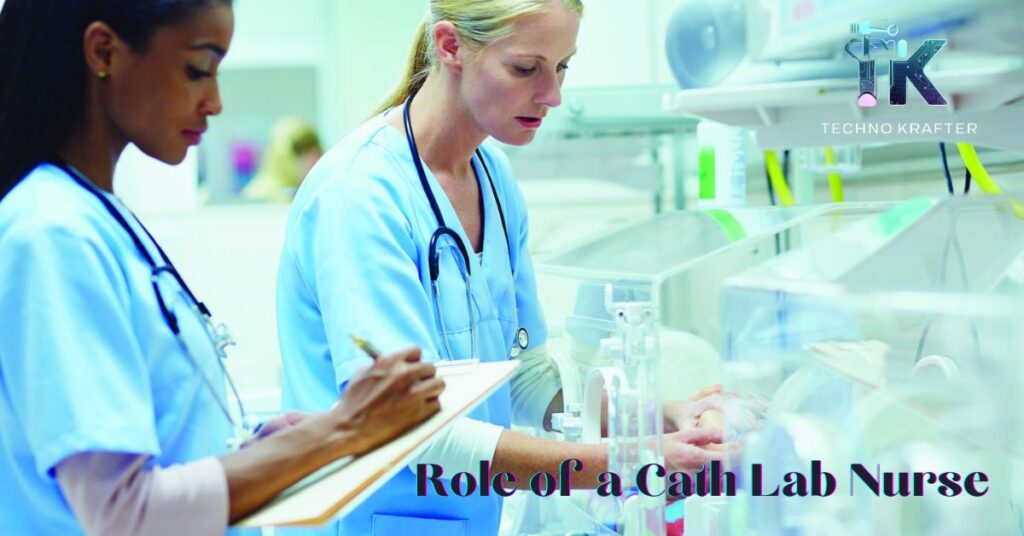
Here are 5 key responsibilities of a Cath Lab Nurse:
- Assisting in preparing patients for catheterization method
- Watch patients’ vital signs during procedures
- Administering medications as directed by the healthcare team
- Providing post-practice care and monitoring patients’ recovery
- Collaborating with the interdisciplinary team to ensure optimal patient outcomes
Final Thought:
A fulfilling career in healthcare as a Cath Lab Tech, where you’ll assist cardiac physicians in vital cardiovascular procedures with precision and expertise. Dive into the dynamic world of catheterization labs and contribute to diagnosing and treating heart conditions, ensuring improved cardiac health outcomes for patients.
Cath Lab Techs play a pivotal role in cardiovascular care, supporting physicians during cardiac catheterization and angioplasty procedures. They meticulously monitor patients’ vital signs, maintain sterile environments, and document procedure details accurately, ensuring optimal patient care.
Frequently Asked Question
What does a Cath Lab Tech do?
Cath Lab Techs assist cardiac physicians during cardiovascular procedures, such as angioplasty and stent placement, and monitor patients’ vital signs.
How do I become a Cath Lab Tech?
To become a Cath Lab Tech, you typically need an associate degree in cardiovascular technology or a related field, along with clinical experience.
What education is required to work as a Cath Lab Tech?
The education required to work as a Cath Lab Tech usually includes an associate degree in cardiovascular technology or a similar field.
What certifications do Cath Lab Techs need?
Cath Lab Techs typically need certifications such as Registered Cardiovascular Invasive Specialist (RCIS) and Basic Life Support (BLS).
What are the typical duties of a Cath Lab Tech?
Typical duties of a Cath Lab Tech include preparing patients for procedures, assisting during catheterization, monitoring patients’ vital signs, maintaining equipment, and documenting procedure details.

Charlis, with 6 years of experience, is a seasoned writer at Techno Krafter. He crafts engaging content with a knack for simplifying complex concepts, enriching readers’ understanding across various tech domains.

